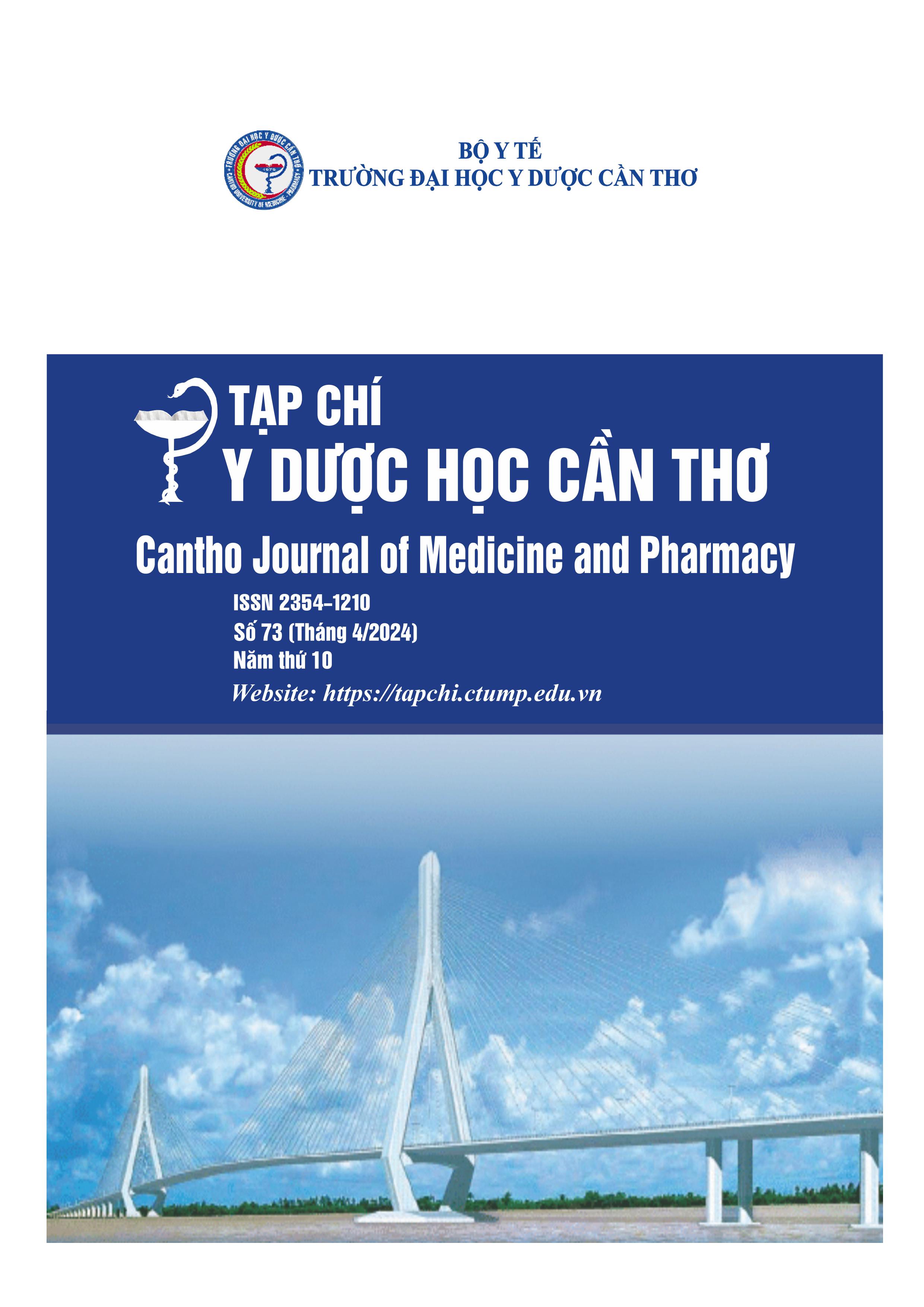RESILIENCE LEVEL OF NURSES CARING FOR COVID-19 PATIENTS AT HOSPITALS IN BINH DINH AND RELATED FACTORS
Main Article Content
Abstract
Background: The COVID-19 pandemic has created unprecedented changes to every aspect of life and impacted the resilience level of many healthcare professionals in the hospital environment, especially nurses caring for COVID-19 patients. The pandemic crisis has placed a huge mental and physical burden on nurses caring for COVID-19 patients. In addition, nurses also have to face psychological changes and fear of infection from patients as well as hospital staff. In the context of the COVID-19 pandemic, a level of personal resilience can help nurses effectively endure stressors caused by the pandemic. Objectives: To determine the resilience level and related factors of nurses caring for COVID-19 patients at hospitals in Binh Dinh. Materials and methods: Cross-sectional descriptive study on 180 nurses caring for COVID-19 patients at hospitals in Binh Dinh. Results: The average resilience level score of nurses caring for COVID-19 patients was 72.89. The results of this study showed that gender (p<0.001), age (p<0.05), work experience (p<0.05), and education level (p<0.05) had a relationship significantly associated with resilience scores of nurses caring for COVID-19 patients. Conclusion: The resilience level scores of nurses caring for COVID-19 patients were low. Resilience training programs and increased knowledge of how to work in critical situations must be implemented for nurses to achieve greater resilience levels in stressful situations.
Article Details
Keywords
Resilience level, nursing, COVID-19
References
2. Alwani S. S., Majeed M. M., Ramzan Z., Rauf S., Syed M. S., and et. al. Evaluation of knowledge, practices, attitude, and anxiety of nurses towards COVID-19 during the current outbreak in Karachi, Pakistan. Pakistan Journal of Public Health. 2020. 10(2), 82-90, https://doi.org/10.32413/pjph.v10i2.601.
3. Albott C. S., Wozniak J. R., McGlinch B. P., Wall M. H., Gold B. S., and et. al. Battle buddies: rapid deployment of a psychological resilience intervention for health care workers during the COVID-19 pandemic. Anesthesia & Analgesia. 2020. 131(1), 43-54, https://doi.org/10.1213/ANE.0000000000004912.
4. Curtin M., Richards H. L., and Fortune D. G. Resilience among health care workers while working during a pandemic: A systematic review and meta synthesis of qualitative studies. Clinical psychology review. 2022. 95, 102173, https://doi.org/10.1016/j.cpr.2022.102173.
5. Fung S. F. Validity of the brief resilience scale and brief resilient coping scale in a Chinese sample. International journal of environmental research and public health. 2020. 17(4), 1265, https://doi.org/10.3390/ijerph17041265.
6. Akkuş Y., Karacan Y., Güney R., and Kurt B. Experiences of nurses working with COVID19 patients: A qualitative study. Journal of clinical nursing. 2022. 31(9-10), 1243-1257, https://doi.org/10.1111/jocn.15979.
7. Huang J. Z., Han M. F., Luo T. D., Ren A. K., and Zhou X. P. Mental health survey of medical staff in a tertiary infectious disease hospital for COVID-19. Chinese journal of industrial hygiene and occupational diseases. 2020. 38(3), 192-195, https://doi.org/10.3760/cma.j.cn121094-20200219-00063.
8. Mallon A., Mitchell G., Carter G., Francis McLaughlin D., Linden M., and et. al. Exploring Resilience in Care Home Nurses: An Online Survey. In Healthcare. 2023. 11(24), 3120, https://doi.org/10.3390/healthcare11243120.
9. Januszek D., Kobos E., and Dziedzic B. Resilience index and mental stress of nursing staff working in intensive care units during the SARS-CoV-2 coronavirus pandemic. Medical Science Pulse. 2023. 17(3), 61-70, https://doi.org/10.5604/01.3001.0053.8890.
10. Dai Y., Hu G., Xiong H., Qiu H., and Yuan X. Psychological impact of the coronavirus disease 2019 (COVID-19) outbreak on healthcare workers in China. Medrxiv. 2020. 3, https://doi.org/10.1101/2020.03.03.20030874.
11. Kakemam E., Raeissi P., Raoofi S., Soltani A., Sokhanvar M., and et. al. Occupational stress and associated risk factors among nurses: a cross-sectional study. Contemporary nurse. 2019. 55(2-3), 237-249, https://doi.org/10.1080/10376178.2019.1647791.
12. Gentili C., Rickardsson J., Zetterqvist V., Lekander M., and Wicksell R. K. Psychological flexibility as a resilience factor in individuals with chronic pain. Frontiers in psychology. 2019. 10, 473485, https://doi.org/10.3389/fpsyg.2019.02016.
13. Manomenidis G., Panagopoulou E., and Montgomery A. Resilience in nursing: The role of internal and external factors. Journal of nursing management. 2019. 27(1), 172-178, https://doi.org/10.1111/jonm.12662.
14. Kakemam E., Raeissi P., Raoofi S., Soltani A., Sokhanvar M., and et. al. Occupational stress and associated risk factors among nurses: a cross-sectional study. Contemporary nurse. 2019. 55(2-3), 237-249, https://doi.org/10.1080/10376178.2019.1647791.
15. Lee J. H., Hwang J., and Lee K. S. Job satisfaction and job-related stress among nurses: The moderating effect of mindfulness. Work. 2019. 62(1), 87-95, https://doi.org/10.3233/WOR-182843.


